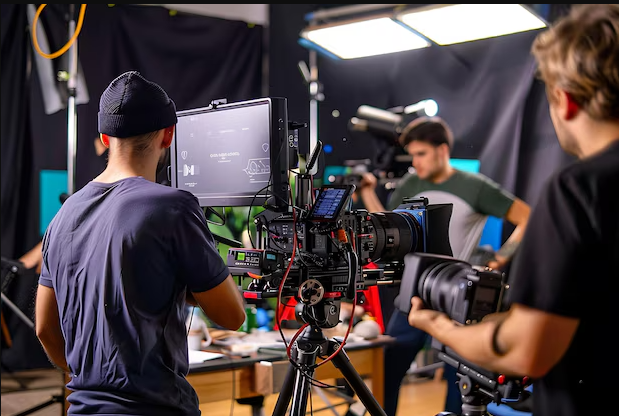Corporate Video Production: Legal Considerations and Best Practices

Creating a corporate video can be a powerful tool for branding, marketing, training, and internal communications. However, navigating the legal landscape is crucial to ensure that your video production is compliant with laws and regulations. This blog will cover essential legal considerations and best practices for corporate video production.
Understanding Legal Considerations in Corporate Video Production
1. Intellectual Property Rights
When producing a corporate video, it’s important to respect intellectual property rights. This includes:
Music and Soundtracks: Ensure you have the proper licenses for any music used. Royalty-free music can be a good option, but even then, check the licensing terms.
Images and Footage: Use only images and footage that you own or have licensed. Avoid using copyrighted material without permission.
Scripts and Text: Ensure any text, scripts, or spoken content do not infringe on copyrighted works.
2. Talent Releases
Whenever people appear in your corporate video, you need to obtain their permission. This typically involves:
Model Releases: Have every person who appears in the video sign a model release form granting you the rights to use their likeness.
Employee Consents: If employees are featured, ensure they understand how the video will be used and have given their consent.
3. Location Releases
Filming on private property or recognizable locations requires permission. Ensure you:
Secure Location Releases: Obtain written permission from property owners to film on their premises.
Public Spaces: Be aware of local regulations for filming in public spaces, which may require permits.
4. Privacy Concerns
Respect privacy laws by avoiding the capture of personal information without consent. This includes:
Avoiding Hidden Cameras: Never use hidden cameras without notifying subjects.
Data Protection: If your video involves collecting data, comply with data protection laws like GDPR.
5. Defamation and False Light
Avoid making false statements about individuals or companies that could harm their reputation. Ensure:
Accurate Representations: All statements in your video are factual and verifiable.
Review and Approval: Sensitive content is reviewed by legal counsel before release.
6. Trademark and Brand Use
Be cautious when using logos, trademarks, or branded content. This includes:
Obtaining Permissions: Get explicit permission to use third-party trademarks or logos.
Avoiding Confusion: Ensure your video does not imply endorsements or affiliations without permission.
Best Practices for Corporate Video Production
1. Pre-Production Planning
Proper planning can help mitigate legal risks. During pre-production:
Develop Clear Scripts and Storyboards: This ensures everyone understands the content and can identify potential legal issues early.
Legal Review: Have legal counsel review scripts and plans, especially for sensitive content.
2. Professional Agreements
Use formal agreements to protect your interests. This includes:
Contracts with Vendors: Ensure contracts with video production companies, freelancers, and other vendors include clauses covering intellectual property, confidentiality, and liability.
Talent Agreements: Have clear, written agreements with all talent, outlining rights and usage terms.
3. Production Practices
During production:
Document Permissions: Keep records of all permissions, releases, and licenses.
Respect Regulations: Follow all local regulations and permit requirements for filming locations.
4. Post-Production and Distribution
In the post-production phase:
Review Content: Conduct a final legal review of the edited video to ensure compliance.
Clear Distribution Rights: Ensure you have the right to distribute the video across all intended platforms.
5. Staying Updated
Laws and regulations can change, so it’s important to:
Regularly Consult Legal Experts: Stay in touch with legal professionals to keep up-to-date with any changes that may affect your video production.
Continual Education: Engage in ongoing learning about intellectual property, privacy laws, and other relevant legal areas.
Conclusion
Navigating the legal aspects of corporate video production can be complex, but with careful planning and adherence to best practices, you can create impactful videos while minimizing legal risks. Always consult with legal experts to ensure full compliance and protect your organization’s interests. By respecting intellectual property, obtaining necessary releases, and adhering to privacy laws, you can produce effective and legally sound corporate videos.


